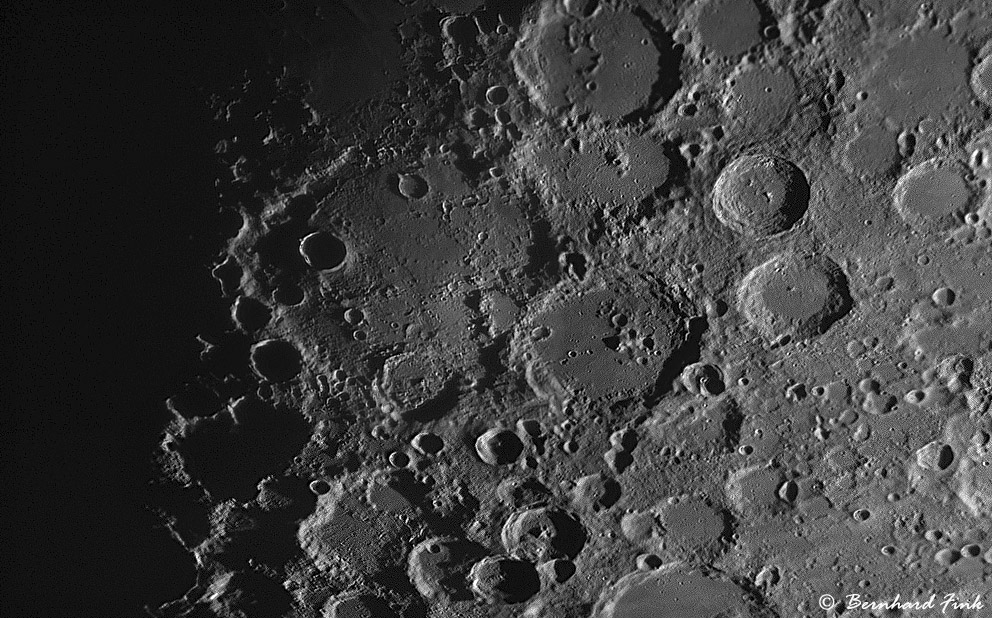Difference between revisions of "May 23, 2011"
| (5 intermediate revisions by the same user not shown) | |||
| Line 1: | Line 1: | ||
__NOTOC__ | __NOTOC__ | ||
=Old Land, Big Craters, Basin Fill= | =Old Land, Big Craters, Basin Fill= | ||
| + | <!-- Start of content --> | ||
<!-- ws:start:WikiTextHeadingRule:0:<h1> --> | <!-- ws:start:WikiTextHeadingRule:0:<h1> --> | ||
<!-- ws:start:WikiTextLocalImageRule:6:<img src="/file/view/LPOD-May23-11.jpg/230790234/LPOD-May23-11.jpg" alt="" title="" /> -->[[File:LPOD-May23-11.jpg|LPOD-May23-11.jpg]]<!-- ws:end:WikiTextLocalImageRule:6 --><br /> | <!-- ws:start:WikiTextLocalImageRule:6:<img src="/file/view/LPOD-May23-11.jpg/230790234/LPOD-May23-11.jpg" alt="" title="" /> -->[[File:LPOD-May23-11.jpg|LPOD-May23-11.jpg]]<!-- ws:end:WikiTextLocalImageRule:6 --><br /> | ||
| − | <em>image by [mailto:bernhard_fink@gmx.de | + | <em>image by [mailto:bernhard_fink@gmx.de Bernhard Fink], Berlin, Germany</em><br /> |
<br /> | <br /> | ||
| − | The 1950s Moon expert [http://en.wikipedia.org/wiki/Dinsmore_Alter | + | The 1950s Moon expert [http://en.wikipedia.org/wiki/Dinsmore_Alter Dinsmore Alter] called the region shown here the Southern Peninsula, for it was highlands loosely |
| − | bounded by mare lavas of Nubium, Medii, Vaporum, Tranquilitatis and Nectaris. Bernhard's image captures the main | + | bounded by mare lavas of Nubium, Medii, Vaporum, Tranquilitatis and Nectaris. Bernhard's image captures the main characteristics of the area: crater upon crater, including many larger ones that are old. This is the most ancient terrain on the |
| − | + | nearside. It is higher than average elevation and has little or no mare lavas at the surface. Deslandres (diameter 256 km) | |
| − | nearside. It is higher than average elevation and has little or no mare lavas at the surface. Deslandres (diameter 256 km) | + | is second only to Bailly (D = 287) as the largest crater on the nearside, but Bailly may be a two-ring basin, making Deslandres |
| − | is second only to Bailly (D = 287) as the largest crater on the nearside, but Bailly may be a two-ring basin, making Deslandres | + | the largest nearside crater (but it too has subtle topographic hints of an inner ring). Deslandres and others of the old craters |
| − | the largest nearside crater (but it too has subtle topographic hints of an inner ring). Deslandres and others of the old craters | + | here were pummeled or dusted by ejecta from the formation of most of the nearside basins - that is why so many of the |
| − | here were pummeled or dusted by ejecta from the formation of most of the nearside basins - that is why so many of the | + | Southern Peninsula large craters have broad flat floors. |
| − | Southern Peninsula large craters have broad flat floors. | ||
<br /> | <br /> | ||
| − | <em>[mailto:tychocrater@yahoo.com | + | <br /> |
| + | <em>[mailto:tychocrater@yahoo.com Chuck Wood]</em><br /> | ||
<br /> | <br /> | ||
<strong>Technical Details</strong><br /> | <strong>Technical Details</strong><br /> | ||
| Line 21: | Line 22: | ||
<br /> | <br /> | ||
<strong>Related Links</strong><br /> | <strong>Related Links</strong><br /> | ||
| − | Rükl plate [ | + | Rükl plate [https://the-moon.us/wiki/R%C3%BCkl_64 64] and [https://the-moon.us/wiki/R%C3%BCkl_65 65]<br /> |
<br /> | <br /> | ||
<hr /> | <hr /> | ||
| + | <p><b>Yesterday's LPOD:</b> [[May 22, 2011|Our Daily Moon]] </p> | ||
| + | <p><b>Tomorrow's LPOD:</b> [[May 24, 2011|50 Years Plus 1 Day]] </p> | ||
| + | <!-- End of content --> | ||
| + | {{wiki/ArticleFooter}} | ||
Latest revision as of 18:53, 13 October 2018
Old Land, Big Craters, Basin Fill

image by Bernhard Fink, Berlin, Germany
The 1950s Moon expert Dinsmore Alter called the region shown here the Southern Peninsula, for it was highlands loosely
bounded by mare lavas of Nubium, Medii, Vaporum, Tranquilitatis and Nectaris. Bernhard's image captures the main characteristics of the area: crater upon crater, including many larger ones that are old. This is the most ancient terrain on the
nearside. It is higher than average elevation and has little or no mare lavas at the surface. Deslandres (diameter 256 km)
is second only to Bailly (D = 287) as the largest crater on the nearside, but Bailly may be a two-ring basin, making Deslandres
the largest nearside crater (but it too has subtle topographic hints of an inner ring). Deslandres and others of the old craters
here were pummeled or dusted by ejecta from the formation of most of the nearside basins - that is why so many of the
Southern Peninsula large craters have broad flat floors.
Chuck Wood
Technical Details
16th April 2011; 00:39 - 01:54 UT. Meade Schmidt-Cassegrain 254mm f10 + DMK 21 + Astronomik IR Pro 742nm filter.
Processing: Registax 4, 450/1000; Fitswork, PS CS3.
Related Links
Rükl plate 64 and 65
Yesterday's LPOD: Our Daily Moon
Tomorrow's LPOD: 50 Years Plus 1 Day
COMMENTS?
Register, Log in, and join in the comments.



